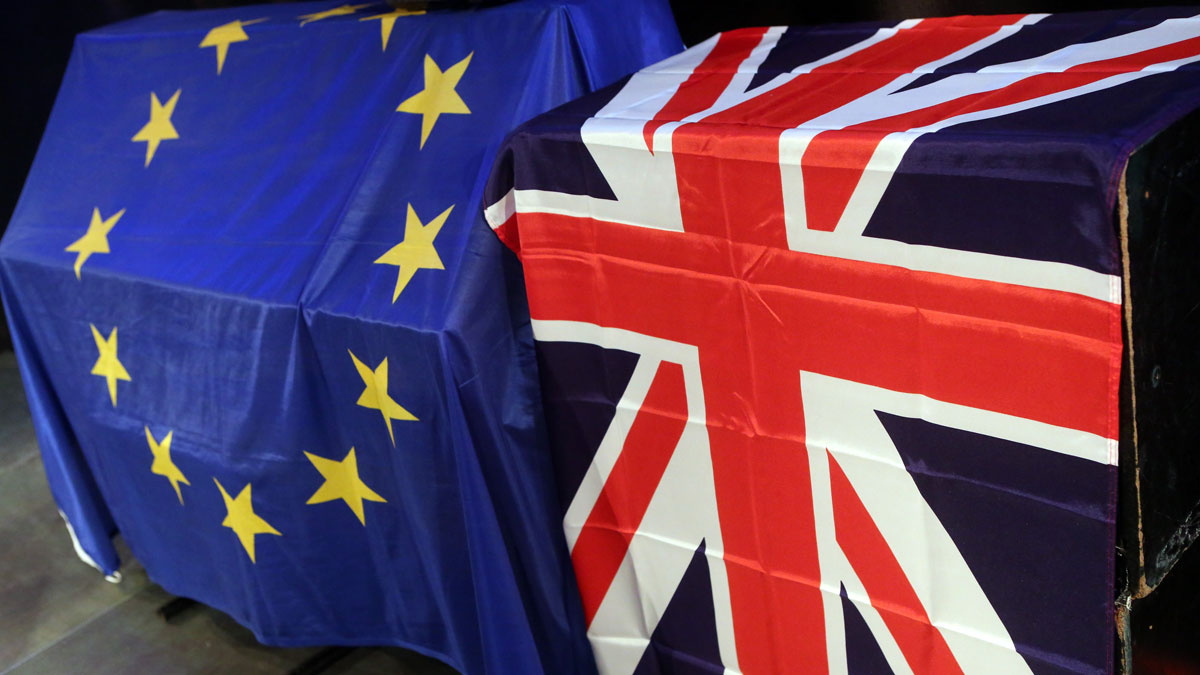How Brexit could affect your holiday
A hit to the pound could hit your spending power in terms of spending money

A free daily email with the biggest news stories of the day – and the best features from TheWeek.com
You are now subscribed
Your newsletter sign-up was successful
Whether we stay in the EU or leave, could have a big effect on your future holidays. In the short term it could affect how much your foreign currency costs you and in the long term it could mean more expensive holidays. Here’s what the experts are saying.
How could Brexit affect my holiday money?
The EU debate has already hit the value of the pound. At the end of 2015 £1 would buy you €1.42, today it buys only €1.27.
The Week
Escape your echo chamber. Get the facts behind the news, plus analysis from multiple perspectives.

Sign up for The Week's Free Newsletters
From our morning news briefing to a weekly Good News Newsletter, get the best of The Week delivered directly to your inbox.
From our morning news briefing to a weekly Good News Newsletter, get the best of The Week delivered directly to your inbox.
“These lower exchange rates mean your money will have less purchasing power during those all-important two weeks off,” says David Prosser in The Independent. “If you’d change £500 into euros at the end of last year, you’d have received €710 – today you’ll get only €630 to spend on holiday.”
If we do leave the EU the majority of economists agree that the pound would fall in value. But, how far it would fall is up for debate with estimates ranging from 10 per cent to 20 per cent.
“A Leave vote will weaken the pound in the short-term against the Euro and push up the cost of holidays in the Eurozone,” says Ian Hughes, chief executive of Consumer Intelligence. “No matter your view on what is right for the UK it can make sense to buy holiday cash now and avoid losing up to 20% on your Euros if you wait until June 24th and the UK votes to Leave.”
The flip side of this is that if the nation votes to stay in the EU holiday money could become cheap. “There would then be what the markets call a relief rally,” says Larry Elliott in The Guardian. “Sterling would rise on the foreign exchanges because there would be no need for the prime minister to fall on his sword and the civil service would not have to spend the next couple of years renegotiating access to the European single market.”
A free daily email with the biggest news stories of the day – and the best features from TheWeek.com
Is it all bad news?
While a weak pound would mean foreign holidays would be more expensive the flip side is holidays in the UK would become cheaper for foreigners boosting our own travel industry.
Also, weaker sterling could benefit investors. “If the pound weakens on the result of a vote to leave Europe, this would boost the sterling value of the international revenue streams of many FTSE 100 companies, which should be positive for them,” says Danny Cox, a spokesperson for Hargreaves Lansdown, in Moneywise.
What about the cost of flights?
There have been concerns that a vote to leave the EU could see air fares rise. This is because EasyJet has said the EU was responsible for making low-cost flying possible but leaving is unlikely to undo that. “The UK could be marginalised from European open skies agreements, but it seems unlikely,” says Rowena Mason in The Guardian. “IAG, owner of British Airways, has said the EU vote won’t impact its business.”
Will I need a visa to go on my holidays?
Justice Minister, Dominic Raab has said that Brits could need a visa, “or some other kind of check” in order to visit continental Europe if there is a Brexit.
“A requirement for visas to visit France and other EU nations would be a “highly unlikely” outcome of a Brexit, according to a number of property and travel experts,” says Kate Palmer in The Telegraph. While it is possible, many believe that countries such as Spain and Greece whose economies are built on tourism will not want to make it difficult for Brits to visit.